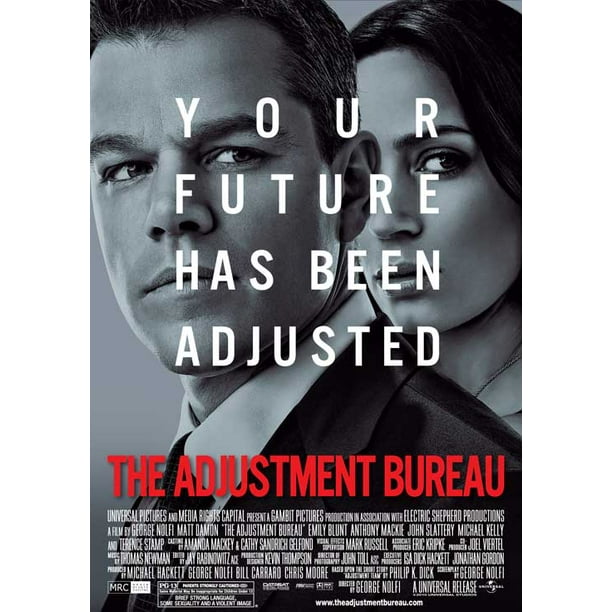Here are several interepretations of the movie. Your job is to read over the blog and pick three to talk about. You don't have to agree with them: you can pick them apart with evidence from the movie.
Questions to choose from (pick three):
1. Near the end, Mal (or her projection) in limbo makes a pretty good case that Cobb is lost in his own dream and can't tell one reality from another. Do you think that this is a plausible alternative? Why or why not?
2. This blog from Moviefone.com outlines six different interpretations of the film (and also five plot holes - see next question). Read it for more details on each of the six interpretations, but I'll just list each of them below. We have talked about some of them in class.** If you decide to fully tackle more than one interpretation of Inception, this will count as another of your three questions.a. All of Inception is a dream - are we ever really shown reality? Whose dream is it, anyway?b. Everything after the test sedation is a dream - after Yusuf's chemical test, do we see Cobb spin his totem and see it fall properly?
c. Saito is the architect and pulls a Mr. Charles gambit on Cobb - instead of a job audition like Saito said, maybe Saito is trying to extract something from Cobb?
d. Ariadne is Cobb's therapist trying to help him get over Mal's death - This is an interesting and plausible take on the movie - found here http://halphillips.tumblr.com/post/822919795/inceptione. We do see reality in the movie (first train ride in Japan, Paris, Mombasa), but Cobb is in a dream at the end - could this explain why the totem never falls at the end of the movie? This interpretation apparently hinges on the idea that the children don't appear to have aged. Plus, we don't see how Saito and Cobb get out of limbo.f. What we see is what we get - that we are presented with a reality at the beginning of the movie (train ride in Japan) and that Cobb is back in the U.S. at the end of the movie.3. Evil genius theory - We should have discussed this in class, but I wonder if it's possible to show that either Saito, Mal or Cobb could be the evil genius manipulating everything we're seeing. Or could it be the film maker Christopher Nolan?4. Is Inception really just an extended metaphor for films? In a previous blog from last semester, I posted a link from Wired, and I traced it back to its source, so I'll quote the author's take on Nolan's film:"The film is a metaphor for the way that Nolan as a director works, and what he’s ultimately saying is that the catharsis found in a dream is as real as the catharsis found in a movie is as real as the catharsis found in life. Inception is about making movies, and cinema is the shared dream that truly interests the director."
Here's a link to the whole post: http://www.chud.com/24477/NEVER-WAKE-UP-THE-MEANING-AND-SECRET-OF-INCEPTION/My question is, do you buy this interpretation of the movie? Why or why not? What kind of implication does it have for us as film watchers - this shared "dream space" of watching a movie together? Did Christopher Nolan just perform inception on all of us because it's now an idea, like a parasite that won't go away? :)5. When Saito asks Cobb to take a leap of faith, he's asking Cobb to believe in him and Saito's ability to fix Cobb's problems. In some ways, Saito almost acts like a deity in this movie because through him, almost everything is engineered to work. He is the Prime Mover or causal agent - Cobb and his team are sent on their mission because they failed to extract vital info from Saito for Cobol Engineering. They are tasked to help destroy Saito's biggest competitor (Fischer), and when it's all said and done, Saito returns from limbo after many many years (remember, Mal and Cobb didn't look like they had aged when the train ran them over after just 50 yrs together, but Saito was wrinkled and withered) and supposedly sweeps away Cobb's murder warrant. What is Saito, really? Is he just a very powerful man or is he something else? Why?
6. Those of you with AP Psych experience, help us out on some of the brain / dream logistics. The way that they explain the dream rules in the movie sound plausible, but what is realistic w/ regards to dreams? Shared dream space isn't possible, is it? Any other psych insights would be greatly appreciated here.
7. Arthur mentioned it briefly on how the technology for the shared dreaming was created - by the military so that soldiers could fight/kill each other without truly maiming themselves in reality. Plus, the character played by Michael Caine, Mal's father, seems to have been the one who taught Cobb how to do what he could do. In many ways, I sense the hints of a "prequel," not a sequel for this movie. Unlike the Matrix (which probably should have been left alone instead of having 2 sequels), it might be interesting to explore how the technology for this type of thing was developed and most likely stolen. If it takes 10 years in between movies like it did with Toy Story or Tron, then so be it. What kinds of possibilities do you see in a prequel or, even if you don't agree with me, a sequel?
DUE THURSDAY, OCTOBER 22 BY MIDNIGHT.

















